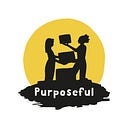Reflections: Our Trip to Falaba
By Jane Farmer
In October we made the trip to Falaba to run a baseline survey, an activity that helps an organisation set achievable and realistic targets for their objectives for a project. This data provides a clear starting point to benchmark progress against and the survey was done to measure key indicators at the start of our project, against which we will assess results.
It was a four-hour drive to Falaba. On the way we passed through hard-to-reach communities; places most people would not know existed. I had really interesting conversations with the girls of those communities, learning about their lives and what being a girl means to them. I also had deep conversations with my colleagues when we weren’t taking pictures of the scenery, the trees, and the cows. The scenery was breath-taking, the backdrop of trees against the sky enchanting.
The scenery was breath-taking, the backdrop of trees against the sky enchanting.
But the terrible road network was a huge obstacle, the worst example of which was a road that was flooded. At first, we thought that it was not that deep until our car almost sank. I was frightened and my other colleague so much so that they had a panic attack. The driver had to stop to give us time to compose ourselves.
Then, after 2 hours’ drive, we got to a point where we had to stop because a truck had become stuck in the middle of the road. My colleagues and I got down from our vehicle and took pictures whilst we thought about a solution. We had come too far and turning back was not an option. We decided we should take another route even if it meant creating another road because the people were counting on us and we had to work that day. Going back would mean wasting the whole day.
We had come too far and turning back was not an option.
Some of the men from the broken-down truck came to help us by clearing the bush and cutting some grass for it to be navigable. We decided that if we weren’t able to clear a new path, we would have to travel to these communities using bikes also known as okada.
Eventually however, our vehicle got through and we continued our journey. Fifteen minutes later, we got to another road that was filled with water. It was swampy with lots of sand, and because of the timber trucks, there were holes everywhere and smaller vehicles got stuck. Two vehicles trying to cross over the swampy section got stuck and our vehicle had to tow both to the other side.
As we continued, we saw a school which was being held under a tree. It didn’t seem like there were different classes. All the children were being taught by the same teacher. I also saw scrapped vehicles known as “Pul Na Doe” which are used to transport timber from the farm to the main road, making transportation easy for the trucks.
Although the journey was not easy, I was kept going by the fact that I was part of something great; we are making an impact in the lives of girls by reaching out to them in these communities and enrolling them in our Girls Circle program. When we finally got to our destination at Gberia Timbakor Village in Sulima Chiefdom, we were overjoyed! It was a quiet village; the inhabitants were very friendly and accommodating. The girls were excited to see us. We met with them, conducted the baseline survey, and then prepared ourselves for the return journey via the terrible roads.
…we are making an impact in the lives of girls by reaching out to them in these communities and enrolling them in our Girls Circle program.
From this experience, I made many significant observations: the warm hospitality from the inhabitants of the various villages, the girls’ perception about life, their school setting and the massive ongoing timber production.
During the interview I got to know how some of the girls felt when it came to questions about gender preference. Most of the girls stated during the interview that a male child is preferable to a girl child. Another girl told me a girl’s whole existence is for a man (“girls live for men”). I feel like it’s a stereotype and girls are being trained with this mentality which has been passed down from generations thinking less of themselves which in turn affects their voice, choice and power.
Being a girl in Sierra Leone is a disadvantage and we need to change that narrative and break free from the chains of patriarchy. I also noted the immense poverty and deprivation in which most of these people lived. This trip helped me to think deeply about how privileged I am. It strengthened my resolve to help girls and people less fortunate than I am. Overall, despite the tortuous journey, my trip to Falaba was a great experience.
